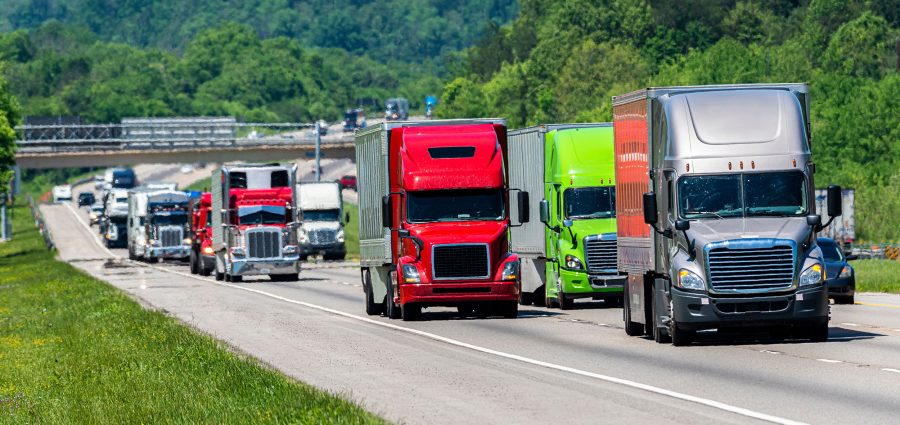On Feb. 8, the American Transportation Research Institute (ATRI) released its annual list of America’s 100 most congested bottlenecks for trucks, revealing that traffic has continued to slow to pre-pandemic levels.
For the fifth consecutive year, ATRI found that the intersection of Interstate 95 and State Route 4 — just west of the George Washington Bridge in Fort Lee, New Jersey — topped the list as the worst truck bottleneck in the U.S. ATRI uses GPS data from over 1 million freight trucks to measure the level of truck-involved congestion at over 300 locations on the national highway system, according to a news release.
The following intersections rounded out ATRI’s top 10 truck bottlenecks list for 2023:
- Chicago: I-294 at I-290/I-88
- Houston: I-45 at I-69/US 59
- Atlanta: I-285 at I-85 (North)
- Atlanta: I-20 at I-285 (West)
- Chicago: I-290 at I-90/I-94
- Los Angeles: SR 60 at SR 57
- Los Angeles: I-710 at I-105
- Nashville: I-24/I-40 at I-440 (East)
- San Bernardino, California: I-10 at I-15
Unsurprisingly, many of the worst bottlenecks take place at highway intersections in the largest cities in the U.S. Chicago, Atlanta and Los Angeles — all notorious as some of the most difficult cities to drive in — each appear twice in the top 10. Meanwhile, the infamous Fort Lee intersection is just across the Hudson River from Manhattan and the Bronx, two of New York City’s most bustling neighborhoods.
Although none of its bottlenecks appeared in the top 10, Texas led all states with 13 bottlenecks in 2023. Georgia followed with nine bottlenecks, while California had eight, Tennessee had seven, and Connecticut and New York had six apiece.
ATRI’s analysis, which used data from 2022, found that average rush hours truck speeds were 36.3 MPH, down 6.1% from the previous year, according to the release. Among the top 10 bottlenecks, average rush hour truck speeds were below 30 MPH. Out of the top 100 bottlenecks, nearly half saw average truck speeds under 45 MPH over a 24-hour period, not just during rush hour.
“The past year-plus has shone a spotlight on our supply chains, and how congestion and other pressures can hurt the American economy and consumers,” American Trucking Associations president and CEO Chris Spear said in the release. “ATRI’s bottleneck report highlights the areas of our transportation network in need of investment so we can get goods and people moving. The cost of doing nothing is felt in needless delays, wasted fuel and time.”

Related Posts
-
Michael Pastore will lead all manufacturing, quality, supply chain, EHS and customer service activities at…
-
David Brown joins ERIKS with more than 15 years of senior leadership experience and 25…
-
The fasteners, MRO and safety products distributor has new leaders CIO and leaders for HR…





